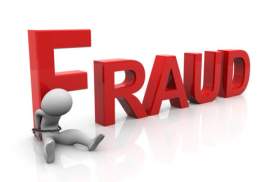
Everything to know about the OTC

What is the OTC Exchange?
• The OTC or over-the-counter exchange is a marketplace to trade financial instruments, such as stocks, derivatives, commodities or bonds directly between a buyer and seller. The OTC exchange is contrasted with exchange trading marketplaces, such as the New York Stock Exchange, which will affirm trades via a facility constructed for the purpose of trading.
• The two most common trading networks of the OTC markets are the Pink Sheets and the Over the Counter Bulletin Board. The OTCBB operates as an electronic medium for broker dealers by displaying real-time quotes, prices and volume for all OTC securities. The OTCBB is regulated by the Financial Industry Regulatory Authority and requires all securities listed on the market to file reports with the SEC or the respective regulator for its industry.
• The Pink Sheets, which is published in a private manner by its parent company, also utilizes an electronic quotation system for broker-dealers. The Pink Sheets; however, do not require companies to meet any formal requirements for listing; those companies on the Pink Sheets are typically thinly traded and viewed as speculative investment opportunities.
• In the United States, all OTC trading, primarily in stock, is carried out by market makers that created the markets in the Pink Sheets or OTCBB securities using only inter-dealer quotation services. An OTC stock is not typically listed nor traded on any stock exchange; however, exchange listed stocks may be traded OTC on the third market. Although stocks quoted on the OTCBB must formally comply with regulations and laws instituted by the United States Securities and Exchange Commission, other OTC stock, such as those categorized as Pink Sheet securities, are free from reporting requirements. Furthermore, those stocks categorized as OTCQX securities must meet alternative disclosure regulations through the Pink OTC marketplace.
• Unlike the conventional stock exchanges, such as the NYSE or the Toronto Stock Exchange, the OTC market possesses no physical location. Instead, all OTC items are traded over technological mediums; a network of broker-dealers will facilitate the buying and selling orders of investors. A company may choose to issue securities in the OTC marketplace to avoid listing requirements or because the respective security is attached with increased volatility.
What are OTC Contracts?
• A stock trading over the counter will be attached with a bilateral contract; these OTC contracts require that two parties agree on how a specific trade or agreement is to be affirmed in the future. The OTC contract is typically spawned from an investment bank then offered directly to the institution’s client base. Common examples of such OTC contracts are forwards and swaps; these contracts are very common for investment banks and option traders.
• The majority of OTC contracts are executed and affirmed by computer or telephone; for derivatives, these agreements are typically governed by various regulations, which are formally instituted by an International Swaps and Derivatives Association Agreement.



















